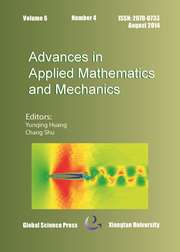Article contents
Toward Cost-Effective Reservoir Simulation Solvers on GPUs
Published online by Cambridge University Press: 19 September 2016
Abstract
In this paper, we focus on graphical processing unit (GPU) and discuss how its architecture affects the choice of algorithm and implementation of fully-implicit petroleum reservoir simulation. In order to obtain satisfactory performance on new many-core architectures such as GPUs, the simulator developers must know a great deal on the specific hardware and spend a lot of time on fine tuning the code. Porting a large petroleum reservoir simulator to emerging hardware architectures is expensive and risky. We analyze major components of an in-house reservoir simulator and investigate how to port them to GPUs in a cost-effective way. Preliminary numerical experiments show that our GPU-based simulator is robust and effective. More importantly, these numerical results clearly identify the main bottlenecks to obtain ideal speedup on GPUs and possibly other many-core architectures.
MSC classification
- Type
- Research Article
- Information
- Copyright
- Copyright © Global-Science Press 2016
References
- 1
- Cited by


